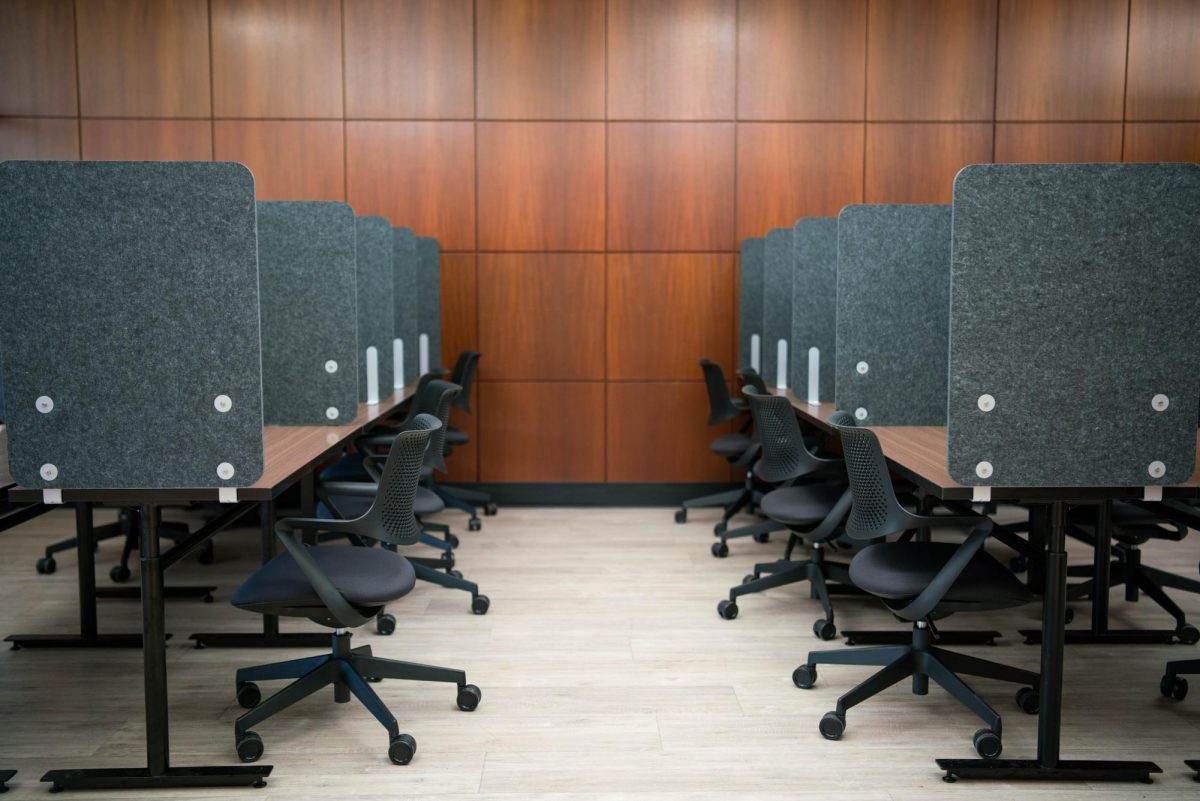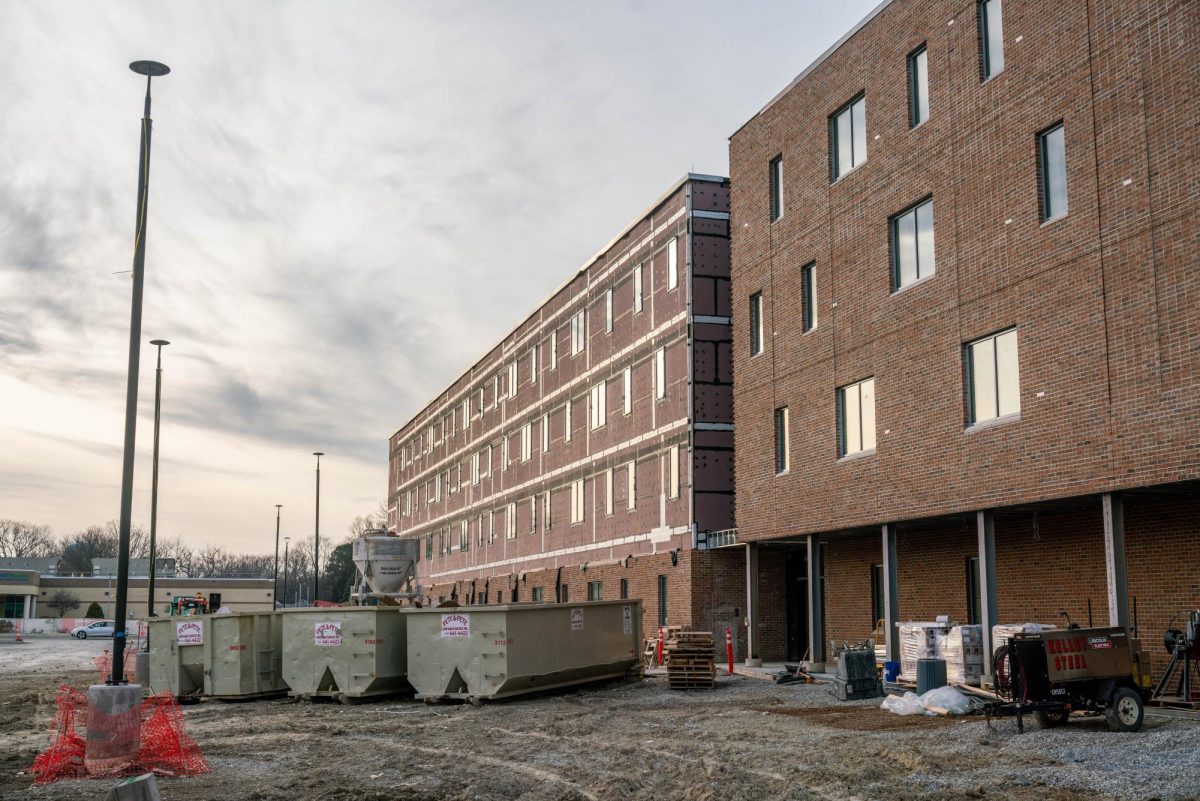The Accommodated Testing Center, run by the Office for Disability and Access, is open starting this week in Biggs Commons at Stevenson Dining Hall. Students with accommodations on exams approved by the ODA, such as extended time and/or testing in a reduced-distraction environment, are eligible to take exams in the space.
A more permanent testing center will be put together in Wilder Hall when the renovations are complete. The current temporary center has a lobby area where students will check in for their exams, a room subdivided into test-taking cubicles with solid walls, and a larger room that will accommodate students with needs that require more space, including technology and mobility considerations.
Previously, testing accommodations such as a reduced-distraction space would be arranged between a student and their professor. Some students who use accommodations for testing, such as College third-year Fay Levin, who served as student wellness liaison for Student Senate last year, felt this system was satisfactory.
“I, personally, have never had an issue where a professor and I weren’t able to communicate about accommodations for testing,” Levin said. “I’ve noticed that most professors are very able to provide all the testing accommodations, and in most buildings … there are designated spaces already for testing.”
However, according to Julia Stark, the accommodated testing and technology manager who has helped oversee the creation of the new center, it was time for a new system.
“We’ve seen a growing need from both the faculty and the students to facilitate [accommodated testing solutions] for them to make it easier on everybody,” Stark said.
The Accommodated Testing Center’s opening at the start of this semester was preceded by pilot programs in the spring and fall of 2023. After students raised concerns about the center closing on weekends when some final exams occur, the center’s exam season hours were expanded to include Saturday and Sunday.
However, concerns about the center’s hours have been an ongoing conversation in the Oberlin Student Senate Committee on Disability Equity. Currently, there will be one morning and one afternoon exam slot every day of finals week. Students will not be able to use the testing center after 5 p.m., though some exams are held from 7–9 p.m. The ODA will coordinate with students who have 7–9 p.m. exams to find an alternate time.
In a letter to Dean Rebecca Smith, director of the ODA, detailing concerns about the testing center, members of the Student Senate wrote that their largest concern was this finals week policy.
“If the goal of the testing center is to have students with accommodations take the exam at the same time as their peers, this is not fulfilling that goal,” the letter reads.
In email communication following the letter, Smith explained that limiting testing times during finals to two slots was necessary to accommodate students with extended time.
Stark explained that if there was a time slot starting at 7 p.m. for an exam with an allotted time of two hours without accommodations, a student who has an accommodation for double time would be in testing until 11 p.m. This would also present an issue in coordinating with the professor, as professors must be equally available to students taking the exams in-class and in the center.
College fourth-year Alana McBride, who chairs the Student Senate Committee on Disability Equity, still had concerns about the policy.
“I’m still concerned that students who don’t have extended time, but a student who just has an accommodation that they need a quieter testing space, will not be taking the exam at the same time as their peers,” McBride said. “If I have an exam from 7–9 p.m. on Friday and my accommodation is a quiet room, I should still be taking that exam from 7–9 p.m. with my peers. There’s no reason I should be taking the exam starting hours earlier or even the next day, as this policy is indicating. It seems unreasonable.”
Other concerns brought up by the Committee involve requirements to show photo ID and remove large coats and hats, because students testing in the classroom environment would not have to follow these extra steps. Smith responded in an email that these policies were to maintain test integrity in line with the Honor Code and reduce distractions in the test environment.
McBride hopes that the conversation between students and the ODA regarding the center will continue.
“[Currently, the center] will make it easier for professors to do their jobs, which is great, and it’ll make it easier for some students, but it will make it harder for some students,” she said. “And that is not the point of accommodations– accommodations are to make it equitable.”
Stark noted that the ODA highly values and continues to welcome student feedback. Students eligible for testing accommodations will likely receive emails in the following weeks informing them of Accommodated Testing Center policies and inviting them for group or one-onone training about how to utilize the space.









